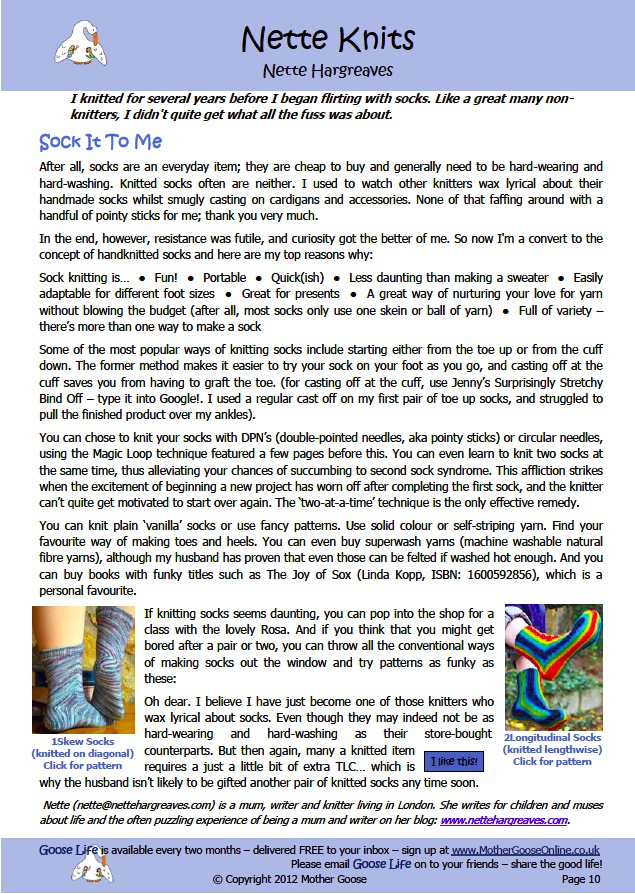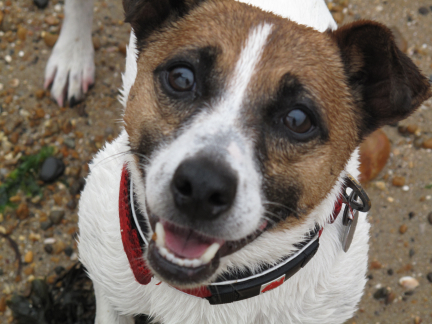 It’s no secret that the only reason I take Lilly to the library is to have an excuse to riffle through the picture book section – AGAIN!
It’s no secret that the only reason I take Lilly to the library is to have an excuse to riffle through the picture book section – AGAIN!
I can’t seem to leave the bloody place without checking out at least a dozen new books.
I just love them and it never ceases to amaze me how much you can say when the right words are skillfully matched with the right illustrations.
My list of favourites contains anthropomorphic books for two reasons:
a) Despite the opposition to these types of books from certain educational philosophies (i.e. Steiner/Waldorf), I find them very cute and enjoyable.
b) They make up a large proportion of what is published. Embodying animals with human characteristics and emotions minimizes racial and gender stereotyping, and thus (at least in theory) gives these books a broader appeal. But mostly, I just find them cute and enjoyable.
So after nearly a year of ‘research’, here are my Top 12 for 2012 – just in time for the holidays if you are still stuck for gift ideas, or just plain last minute, like me. (These are my favourites from the vast selection of books I encountered this year rather than books that were new on the market in 2012)

 Louisa Yates, Red Fox Publishing
Louisa Yates, Red Fox Publishing
I recently came across this budding series and I am in luuurrrvvv with Dog!!!
These beautiful books have absolutely charming illustrations, and the little white dog is quite possibly the most adorable thing ever. He might (!) even top Jack on the cuteness scale…
Dog Loves Books is about Dog opening a bookshop and getting lost in the magic of stories.
In Dog Loves Drawing, Dog receives a blank sketchbook that he escapes into with an adventurous posse of friends that he draws along the way.
TOP DOG – love them both!
 Where The Wild Things Are, Maurice Sendak, The Bodley Head Children’s Books (Random House)
Where The Wild Things Are, Maurice Sendak, The Bodley Head Children’s Books (Random House)
This 1963 book is a children’s classic with amazingly detailed illustrations. Max causes mayhem in his wolf costume and is sent to his room without supper. From there, he escapes to an imaginary place where he becomes king of all wild things. Brilliant use of very few words to say a lot! This story also has a lovely ending with Max deciding to come home to find his supper waiting in his room… still hot.
 The Three Billy Goats Fluff, Rachael Mortimer, Hodder Children’s Books
The Three Billy Goats Fluff, Rachael Mortimer, Hodder Children’s Books
This is a brilliant take on the fairy tale The Three Billy Goats Gruff. In this version, Mother Goat knits booties for her billy goats so they don’t make any noise trip-trapping over the bridge and waking the grumpy troll living underneath. The story is written in prose with the troll speaking in verse as he threatens to make meals out of the goats if they continue to wake him… that is, until he is presented with handknitted earmuffs, of course.
 The Very Small, Joyce Dunbar, Random House Children’s Books
The Very Small, Joyce Dunbar, Random House Children’s Books
This is a seriously cute story about a Marsipulami-like creature lost in the woods, and found by Giant Baby Bear. The Very Small wants his own mummy, daddy and home, and baby bear shares everything with him… until they fall asleep and The Very Small is catapulted back into the woods by baby bear’s sleepy sneeze. The illustrations, as with any good picture book, are just darling, and I got so drawn into the story that I did feel rather sorry for baby bear eventually having to wake up to find his new-found friend missing (the book mercifully skips this part, and ends with The Very Small being reunited with his own parents).
 Love Is A Handful of Honey, Giles Andreae, Orchard Books
Love Is A Handful of Honey, Giles Andreae, Orchard Books
This is a heart-warming take on everything that defines ‘love’ in the day of a little bear spent with his friends and family.
It’s an early Giles Andreae publication, and in my mind far tops his more famous books like Rumble in the Jungle and Giraffes Can’t Dance.
 I Love You, Blue Kangaroo, Emma Chichester Clark, HarperCollins Children’s Books
I Love You, Blue Kangaroo, Emma Chichester Clark, HarperCollins Children’s Books
A touching story about a little girl’s favourite stuffed animal. Lily loves blue kangaroo, but he soon has to share her affection with all the other toys gifted to her. Feeling lonely and rejected, blue kangaroo snuggles up to Lily’s baby brother instead… but once she notices him missing, she quickly bequeaths her whole menagerie to her little brother in order to get blue kangaroo back.
There are eight further titles in this series to date.
 My Big Brother, Boris, Liz Pichon, Scholastic Children’s Books
My Big Brother, Boris, Liz Pichon, Scholastic Children’s Books
This book has more text and is aimed at a slightly older age group. It deals with the struggles of daily family life, and the conflict between different aged siblings, the oldest one being a grumpy teenager in this case.
A further title in this series is My Little Sister, Doris (which I have yet to read).
 The Heart and the Bottle, Oliver Jeffers, HarperCollins Children’s Books
The Heart and the Bottle, Oliver Jeffers, HarperCollins Children’s Books
This is a very touching book about a girl who looses her father, and decides to protect herself from hurt and sadness by cutting off her emotions. I love the simple yet effective language, although I am not sure how a young child would react to this story? I guess mostly it would be a story, rather than the deeply meaningful metaphor I read as an adult.
 Giddy Goat, Jamie Rix, Orchard Books
Giddy Goat, Jamie Rix, Orchard Books
Absolutely LOVE this one!
It is a great story about overcoming your fears and finding friendship, told through the eyes of a mountain goat that inconveniently is afraid of heights.
The sequel is Giddy the Great.
 My Many Coloured Days, Dr Seuss, Red Fox Publishing
My Many Coloured Days, Dr Seuss, Red Fox Publishing
Possibly the least well-known of the Dr Seuss oeuvre, this book was written in 1973, and posthumously illustrated and published.
Different feelings are described as related to colours, thereby playfully introducing a variety of emotions.
‘Maybe on some days you feel sort of brown, like a bear; you feel slow and low, low down. But then comes a yellow day and wheeeeeeeee! you feel like a busy, buzzy bee.
What I love most about this book is the way it highlights the changing nature of everyday feelings, and most importantly, that your feelings are not who you are.
 Who Loves Baby?, Julia Hubery, Piccadilly Press Ltd
Who Loves Baby?, Julia Hubery, Piccadilly Press Ltd
This is a new release, and one of my latest finds, addressing the feelings of a toddler in the presence of a ‘new’ baby.
A meerkat pup’s new sibling is swooned over by the ‘Gooey Gang’ – a group of females coming around to coo over baby. ‘Don’t they know Baby is icky and sicky and pongy and pooey?’ he wonders. In the end, his teddy helps him discover that maybe Baby does have its good sides after all.
I also love this book for the introduction of words that require referencing from the Urban Dictionary, like ‘pongy’ (smelly) and ‘whuffle’ (in this context a snuffling noise).
There are other books I liked, such as Simon Puttock’s Big Bad Wolf is Good, although on reflection I would not read it to Lilly as it introduces labels such as good and bad. And then of course there are books that bear no further introduction, such as The Gruffalo, Green Eggs and Ham, or anything by Quentin Blake.
Happy Christmas reading everyone, and I look forward to more quality library time with Lilly in 2013!


























